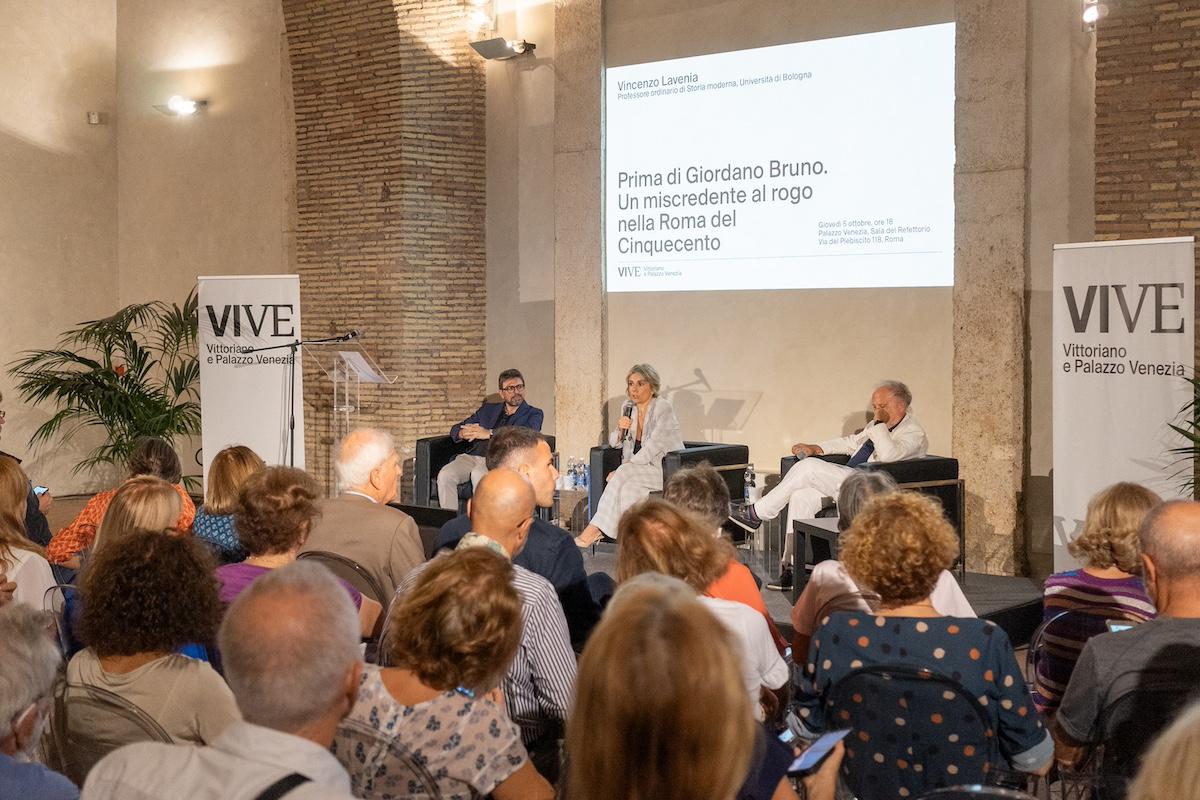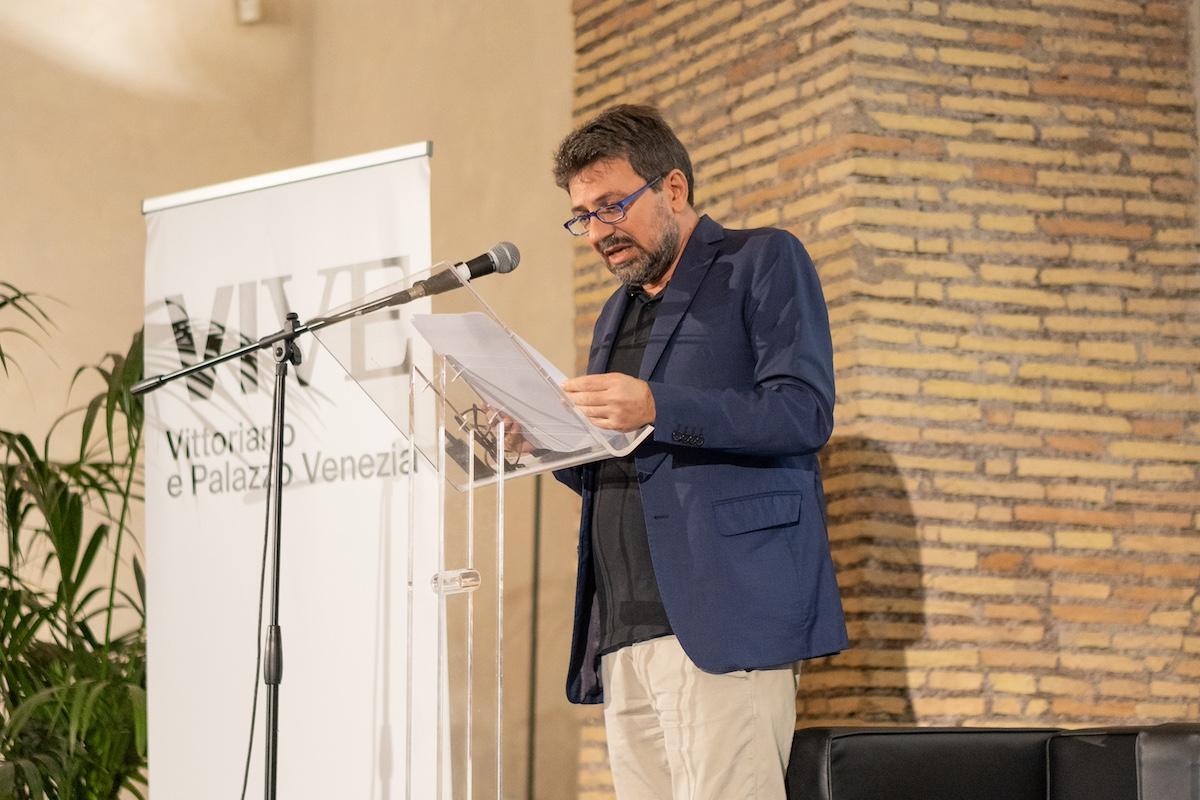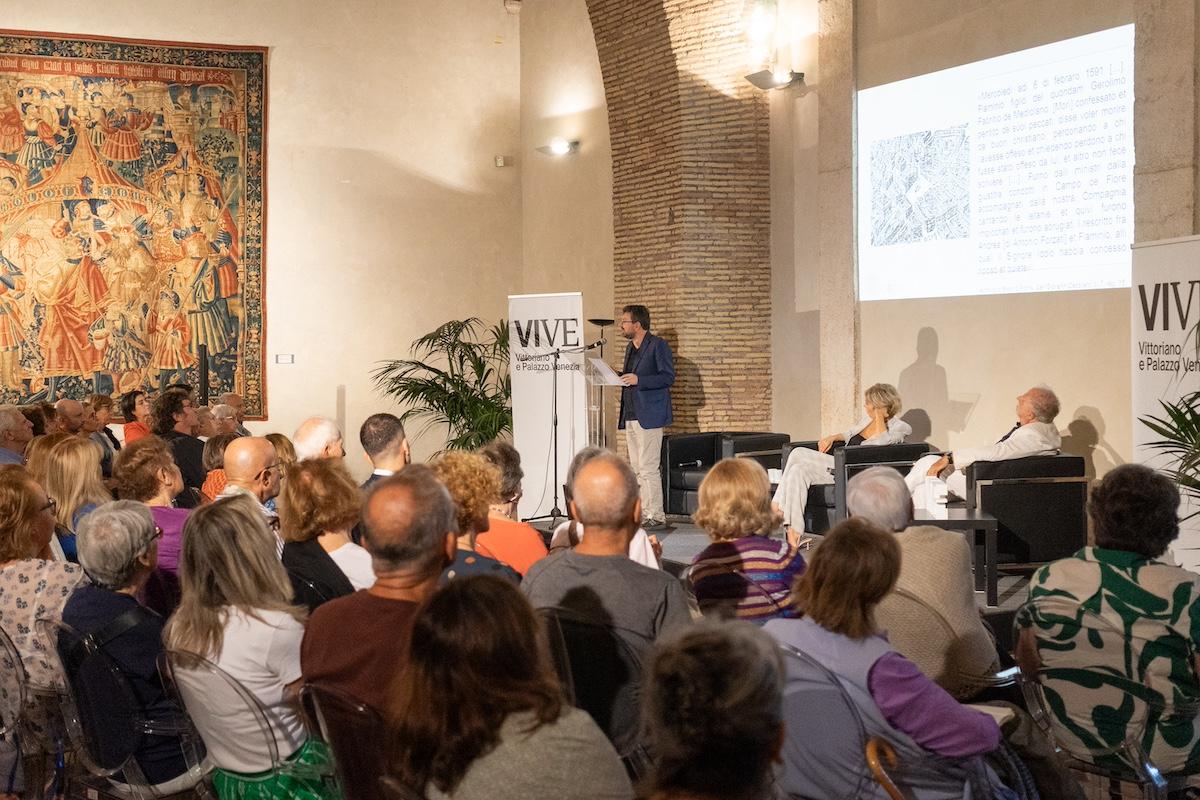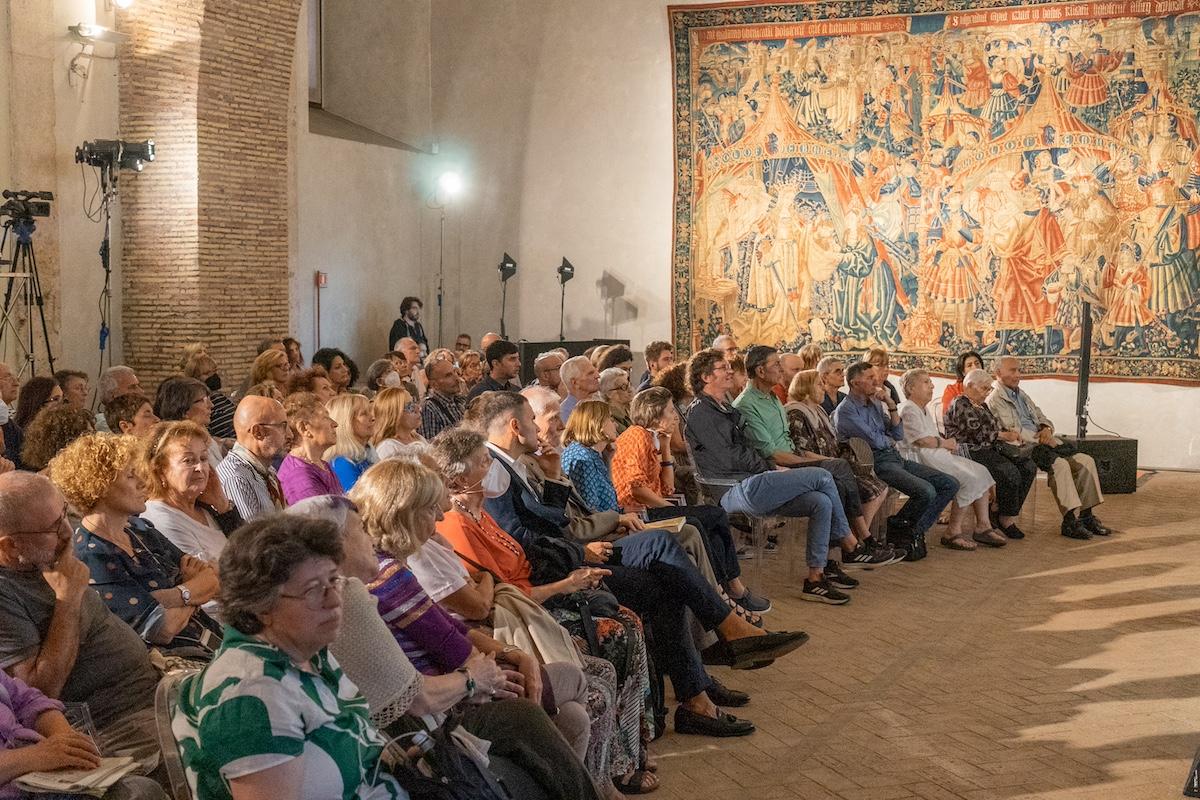SERIES: From Rome to the rest of the world. Tales from a past that lives on - Under the aegis of Francesco Benigno, professor of Modern History, Scuola Normale Superiore in Pisa
SPEAKER: Vincenzo Lavenia
DATE: Thursday 5 October, 6pm
PLACE: Palazzo Venezia, Sala del Refettorio
In 1591 a man named Flaminio Fabrizi was burned at the stake in Campo de’ Fiori by order of the Inquisition, which had judged him a particularly dangerous heretic. The young man, born in Rome, was not a scholar, like Giordano Bruno or Tommaso Campanella (who would later be punished for similar crimes), and had lived an adventurous life, only to be captured, three years before the death sentence, in the house of a prostitute in Siena. He had practised astrology and had joined a circle of nobles in the Tuscan city, to whom he had expounded his conception of the world. Flaminio did not believe in miracles, he doubted the stories of the Old Testament (the creation, Noah’s ark, the crossing of the Red Sea) and affirmed that the world was eternal and that Moses, Christ and Mohammed were three impostors. His story, previously unknown, offers an insight into the history of unbelief and, more generally, the characters of religious dissent in Italy in the late Renaissance.















